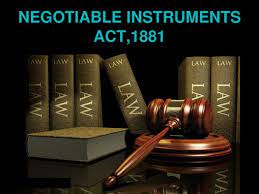Analysis of the Foreign Contribution (Regulation) Amendment Act, 2020
The Foreign Contribution (Regulation) Amendment Act, 2020 (hereinafter Amendement Act), has brought several technical and structural changes to the Foreign Contribution (Regulation) Act of 2010 (hereinafter Principal Act). Back in 2010, the Principal Act was given the shape of a legislature in order to consolidate the law that can regulate the acceptance and utilization of foreign contribution or foreign hospitality and to prevent the use of the same for any activities which can be detrimental to the national interest.[1]Preamble of the Principal Act
The Amendement Act has the legislative intent to strengthen the compliance mechanism, enhance transparency, and accountability in the receipt and utilization of foreign contribution, and to facilitate genuine non-governmental organizations or associations who are working for the welfare of the society.[2]Statement of Objects and Reasons of Amendement Act . The AmendmentAct came as a backdrop of a distraught situation where the Central government had to cancel certificate of registration of more than 19,000 recipient organizations in the last 10 years because of misusing the foreign contribution which has been received by them[3]Paragraph 3, Page 4 of the Therefore, the government through this amendment Act wants to curb such misuse of the funds by those entities who are registered with the Government and are entitled to use the foreign contribution. Thus, it is necessary to critically analyse the relevance of Amendment Act that has sought to make the Principal Act stronger and more operationable.
Major Amendments
Transfer of Foreign Contribution– Earlier, as per Section 7 of the Principal Act, a person who receives foreign contribution and who has been registered and granted a certificate or has obtained prior permission under the Act, was allowed to transfer such foreign contribution to any other person who is also registered and has been granted the certificate or has obtained the prior permission under this Act. However, the Amendement Act completely prohibs such transfer of foreign contribution to any other person in all circumstances.
Reduction in usage of Foreign Contribution for administration expenses- As per Section 8(b) of the Principal Act, fifty percent (50%) of the foreign contribution received in a financial year was permitted to be used for the purposes of administrative expenses. However, the Amendement Act has now lowered the percentage mark to 20 percent (20%) of the foreign contribution received in a financial year. Therefore, now only 20 percent of the contribution received in a financial year can be used for administrative expenses like paying salaries, traveling expenses, etc.
Restriction in utilization of funds- Section 11 of the Principal Act states that if a person has been found guilty of the violation of any of the provisions of this Act or even of the Foreign Contribution (Regulation) Act, 1976, the unutilized or unreceived amount of foreign contribution shall not be utilized or received by the same person without taking approval of the Central Government. Hence, this provision earlier dealt with only those cases where the person has already found guilty. However, the Amendement Act has significantly changed the position. Now, the Central government has got the power to take such actions even in cases where the inquiry is pending and yet to be concluded. The only condition which is required is that the Central Government, based on information or report, and after holding a summary inquiry, has reasons to believe that such a person who has earlier been granted permission is now contravening the provision(s) of the Act.
Prohibition on ‘public servant’ from receiving foreign contribution- Under Section 3 of the Principal Act, a list has been provided in regard to those persons who are prohibited to accept the foreign contributions. Under clause (c) of Section 3, restrictions have been put on Judges, Government servants, or employees of any corporation or any other body controlled or owned by the Government to accept foreign contributions. Through the Amendement Act, the list has now been expanded as the term “public servant” is also now inserted under clause (c) of Section 3. The term ‘public servant’ here refers to the same meaning of the term ‘public servant’ as defined under Section 21 of the Indian Penal Code.
Surrender of Certificate- In the Principal Act, there is no such provision for surrendering the certificate, however, through the Amendement Act, Section 14-A has been added which now deals with the power of the Central Government to permit any person to surrender the certificate if, after making such inquiry, it is satisfied that such person has not contravened any of the provision of the Principal Act and that the management of foreign contribution has been vested in the authority as prescribed by the Government.
Provision of inquiry before the renewal of certificate- As per Section 16 of the Principal Act, every person who has been granted a certificate shall have such certificate renewed within six months before its expiry period. However, while renewing the certificate there was no such provision available in the Principal Act for the government to make another inquiry to satisfy itself that such person has fulfilled all conditions that are necessary for the grant of certificate. Through the Amendement Act, a new proviso has been added after Section 16 of the Principal Act that allows the Central Government to conduct an inquiry to satisfy that all the conditions as specified under Section 12(4) of the Principal Act are fulfilled before the renewal of a certificate.
FCRA Account- As per Section 17 of the Principal Act, every person who has been granted a certificate shall receive foreign contribution in a single account only through such one of the branches of that bank which he has specified in his application for the grant of certificate. However, the Amendement Act has regulated the issue and has declared that all such foreign contribution can only be received in an account which is designated as ‘FCRA Account’ by the bank. This account shall be opened by him for the purpose of remittances of foreign contribution in such a branch of the State Bank of India at New Delhi which the Central Government will specify through notification. Nonetheless, the person can also open another FCRA account in any other scheduled bank of his choice for the purpose of keeping or utilizing the foreign contribution received in the FCRA account as opened in the SBI at New Delhi.
Conclusion
After going through the respective amendments that have been incorporated in the Principal Act, it is manifestly evident that these amendments are in line with the aim to prevent dilution and diversification of foreign funds for any ulterior purposes. The amendments enforced clearly shows its harmony with the legislative intent that the Amendement Act has mentioned. Hence, it can be asserted that the Amendment Act is a step ahead towards ensuring maximum utilization of the foreign contribution to achieve the respective goals rather than exploiting the contributions for any ulterior purposes. It is expected that through this amendments, the transperency and accountability will increase and there will be a significant reduction in diversification of funds. Hence, the legislature has make certain that the national security and sovereignity is not been threatened in any circumstances.









 He holds a Bachelor’s and Master’s Degree in Corporate Secretaryship and a Degree in Law. He is a Fellow member of the Institute of Company Secretaries of India and an Associate Member of the Corporate Governance Institute, UK and Ireland. He has also completed a program from ISB on ‘Value Creation through Mergers and Acquisitions.
He holds a Bachelor’s and Master’s Degree in Corporate Secretaryship and a Degree in Law. He is a Fellow member of the Institute of Company Secretaries of India and an Associate Member of the Corporate Governance Institute, UK and Ireland. He has also completed a program from ISB on ‘Value Creation through Mergers and Acquisitions. Mr P Muthusamy is an Indian Revenue Service (IRS) officer with an outstanding career of 30+ years of experience and expertise in all niche areas of Indirect Taxes covering a wide spectrum including GST, Customs, GATT Valuation, Central Excise and Foreign Trade.
Mr P Muthusamy is an Indian Revenue Service (IRS) officer with an outstanding career of 30+ years of experience and expertise in all niche areas of Indirect Taxes covering a wide spectrum including GST, Customs, GATT Valuation, Central Excise and Foreign Trade. During his judicial role, he heard and decided a large number of cases, including some of the most sensitive, complicated, and high-stake matters on insolvency and bankruptcy, including many cases on resolution plans, shareholder disputes and Schemes of Amalgamation, De-mergers, restructuring etc.,
During his judicial role, he heard and decided a large number of cases, including some of the most sensitive, complicated, and high-stake matters on insolvency and bankruptcy, including many cases on resolution plans, shareholder disputes and Schemes of Amalgamation, De-mergers, restructuring etc., Ms. Sarah Abraham has been enrolled with the Bar Council of Tamil Nadu since 1998. Her areas of practice include Shareholder Disputes, Corporate Compliances, Mergers and Acquisitions, Private Equity/ Venture Capital Agreements and allied disputes, Information Technology Contracts, Intellectual Property, General Commercial Agreements, Litigation, Arbitration and Mediation.
Ms. Sarah Abraham has been enrolled with the Bar Council of Tamil Nadu since 1998. Her areas of practice include Shareholder Disputes, Corporate Compliances, Mergers and Acquisitions, Private Equity/ Venture Capital Agreements and allied disputes, Information Technology Contracts, Intellectual Property, General Commercial Agreements, Litigation, Arbitration and Mediation. A K Mylsamy is the Founder, Managing Partner and the anchor of the firm. He holds a Degree in law and a Degree in Literature. He is enrolled with the Bar Council of Tamil Nadu.
A K Mylsamy is the Founder, Managing Partner and the anchor of the firm. He holds a Degree in law and a Degree in Literature. He is enrolled with the Bar Council of Tamil Nadu. M Subathra holds a Degree in law and a Master’s Degree in International Business Law from the University of Manchester, United Kingdom. She is enrolled with the Bar Council of Tamil Nadu.
M Subathra holds a Degree in law and a Master’s Degree in International Business Law from the University of Manchester, United Kingdom. She is enrolled with the Bar Council of Tamil Nadu. Mr. K Rajendran is a former Indian Revenue Service (IRS) officer with a distinguished service of 35 years in the Indirect Taxation Department with rich experience and expertise in the fields of Customs, Central Excise, Service Tax and GST. He possesses Master’s Degree in English literature. Prior to joining the Department, he served for the All India Radio, Coimbatore for a period of about 4 years.
Mr. K Rajendran is a former Indian Revenue Service (IRS) officer with a distinguished service of 35 years in the Indirect Taxation Department with rich experience and expertise in the fields of Customs, Central Excise, Service Tax and GST. He possesses Master’s Degree in English literature. Prior to joining the Department, he served for the All India Radio, Coimbatore for a period of about 4 years. An MBA from the Indian Institute of Management, Calcutta, and an M.Sc. in Tourism Management from the Scottish Hotel School, UK, Ashok Anantram was one fo the earliest IIM graduates to enter the Indian hospitality industry. He joined India Tourism Development Corporation (ITDC) in 1970 and after a brief stint proceeded to the UK on a scholarship. On his return to India, he joined ITC Hotels Limited in 1975. Over the 30 years in this Organisation, he held senior leadership positions in Sales & Marketing and was its Vice President – Sales & Marketing. He was closely involved in decision making at the corporate level and saw the chain grow from a single hotel in 1975 to a very large multi-brand professional hospitality group.
An MBA from the Indian Institute of Management, Calcutta, and an M.Sc. in Tourism Management from the Scottish Hotel School, UK, Ashok Anantram was one fo the earliest IIM graduates to enter the Indian hospitality industry. He joined India Tourism Development Corporation (ITDC) in 1970 and after a brief stint proceeded to the UK on a scholarship. On his return to India, he joined ITC Hotels Limited in 1975. Over the 30 years in this Organisation, he held senior leadership positions in Sales & Marketing and was its Vice President – Sales & Marketing. He was closely involved in decision making at the corporate level and saw the chain grow from a single hotel in 1975 to a very large multi-brand professional hospitality group. Mani holds a Bachelor Degree in Science and P.G. Diploma in Journalism and Public Relations. He has a rich and varied experience of over 4 decades in Banking, Finance, Hospitality and freelance Journalism. He began his career with Andhra Bank and had the benefit of several training programs in Banking.
Mani holds a Bachelor Degree in Science and P.G. Diploma in Journalism and Public Relations. He has a rich and varied experience of over 4 decades in Banking, Finance, Hospitality and freelance Journalism. He began his career with Andhra Bank and had the benefit of several training programs in Banking. Mr. Kailash Chandra Kala joined the Department of Revenue, Ministry of Finance as ‘Customs Appraiser’ at Mumbai in the year 1993.
Mr. Kailash Chandra Kala joined the Department of Revenue, Ministry of Finance as ‘Customs Appraiser’ at Mumbai in the year 1993.
 S Ramanujam, is a Chartered Accountant with over 40 years of experience and specialization in areas of Corporate Tax, Mergers or Demergers, Restructuring and Acquisitions. He worked as the Executive Vice-President, Group Taxation of the UB Group, Bangalore.
S Ramanujam, is a Chartered Accountant with over 40 years of experience and specialization in areas of Corporate Tax, Mergers or Demergers, Restructuring and Acquisitions. He worked as the Executive Vice-President, Group Taxation of the UB Group, Bangalore. K K Balu holds a degree in B.A and B.L and is a Corporate Lawyer having over 50 years of Legal, Teaching and Judicial experience.
K K Balu holds a degree in B.A and B.L and is a Corporate Lawyer having over 50 years of Legal, Teaching and Judicial experience. Justice M. Jaichandren hails from an illustrious family of lawyers, academics and politicians. Justice Jaichandren majored in criminology and then qualified as a lawyer by securing a gold medal. He successfully practiced in the Madras High Court and appeared in several civil, criminal, consumer, labour, administrative and debt recovery tribunals. He held office as an Advocate for the Government (Writs Side) in Chennai and was on the panel of several government organizations as senior counsel. His true passion lay in practicing Constitutional laws with focus on writs in the Madras High Court. He was appointed Judge, High Court of Madras in December 2005 and retired in February 2017.
Justice M. Jaichandren hails from an illustrious family of lawyers, academics and politicians. Justice Jaichandren majored in criminology and then qualified as a lawyer by securing a gold medal. He successfully practiced in the Madras High Court and appeared in several civil, criminal, consumer, labour, administrative and debt recovery tribunals. He held office as an Advocate for the Government (Writs Side) in Chennai and was on the panel of several government organizations as senior counsel. His true passion lay in practicing Constitutional laws with focus on writs in the Madras High Court. He was appointed Judge, High Court of Madras in December 2005 and retired in February 2017. S Balasubramanian is a Commerce and Law Graduate. He is a member of the Delhi Bar Council, an associate Member of the Institute of Chartered Accountants of India, the Institute of Company Secretaries of India and Management Accountants of India.
S Balasubramanian is a Commerce and Law Graduate. He is a member of the Delhi Bar Council, an associate Member of the Institute of Chartered Accountants of India, the Institute of Company Secretaries of India and Management Accountants of India.